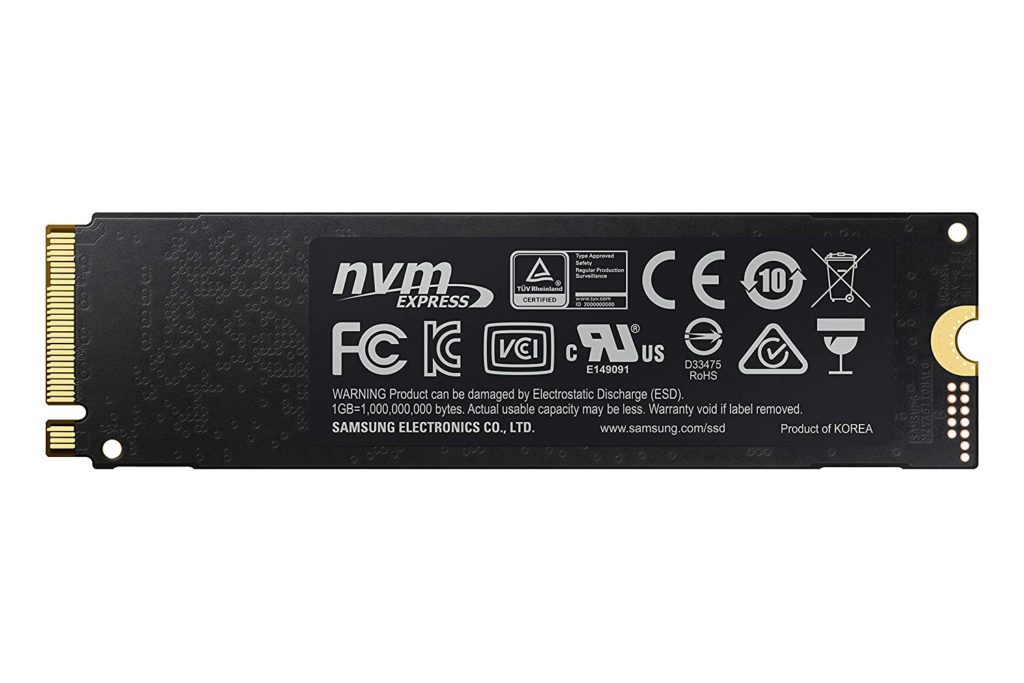REVIEW : Samsung 970 EVO Plus
These days, high-performance SSDs for user PCs are so attractively priced that finding anything to set one aside from the rest is a delightful respite. Shopping for SSDs has been reduced, essentially, to parsing shades of value based on near-identical specifications, costs, and warranties—assuming, of course, you’re reluctant to throw a dart down the aisle and walk home with the drive box it pierces first.

Samsung’s 970 EVO has always been the fastest of the low-priced NVMe SSDs, and the company’s new 970 EVO Plus, Samsung claims up to a 57 per cent improvement in efficiency for the Plus over the previous 970 EVO.
Design and specs
The 970 EVO Plus is the identical drive as the 970 Evo, using the same 64-layer stacked TLC NAND and Phoenix controller with renewed firmware. Note that Samsung points to the NAND not as TLC, but as 3-bit MLC V-NAND (vertical). MLC (Multi-Level Cell) was a poorly perceived moniker that became associated rigidly with 2-bit NAND, but certainly can be employed to any type of NAND that stocks more than one bit per cell.

The 970 EVO Plus is available in 250GB, 500GB (the capacity we tested), and 1TB storage spaces.
The 970 EVO Plus carries a nice five-year warranty and is rated for 150TBW per 250GB of capacity over the life of the drive. Don’t be surprised if you don’t hit that write figure even in 10 years, or if the drive lasts longer than that.
Samsung also claims that the 970 EVO Plus is more energy efficient than previous generations, though that’s something that generally only interests pros who run lots of them in arrays or servers.

Performance
The 970 EVO Plus (green bars) is true quite a bit quicker than the plain EVO in various ways, particularly with sustained writes to the main body of NAND and 4K writes when lots of queues are in play.
While CrystalDiskMark 6 rated the older EVO as a faster reader than the Plus, it also revealed significant improvement for the Plus when it came to writing. Note that these rates are with caching in play. See the next section for info on what happens when the EVO Plus runs out of the cache.
The AS SSD 2 benchmark revealed enormous improvements in small block 4K writes performance for the EVO Plus over the ordinary EVO. So much so that we tested twice to confirm what we were seeing.

Our copy tests bore out the CrystalDiskMark and AS SSD results, though less dramatically. The SSD is faster, so given the equivalent price, surely go for the EVO Plus. Or of course, the 970 Pro, which, while considerably costly, experiences no performance drops throughout long writes sessions.














